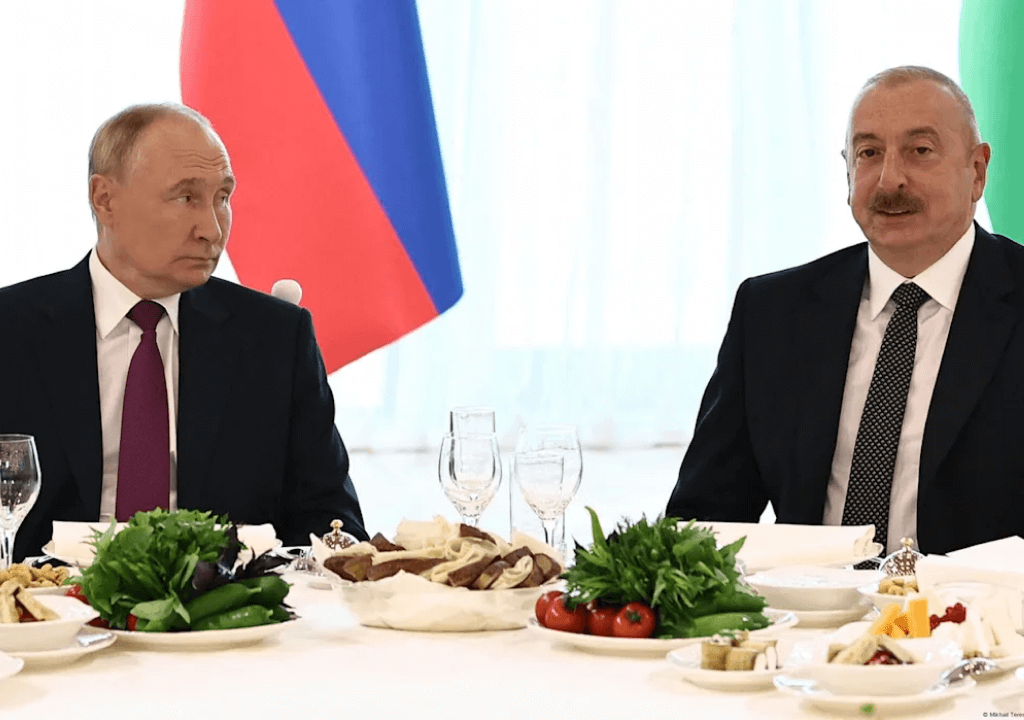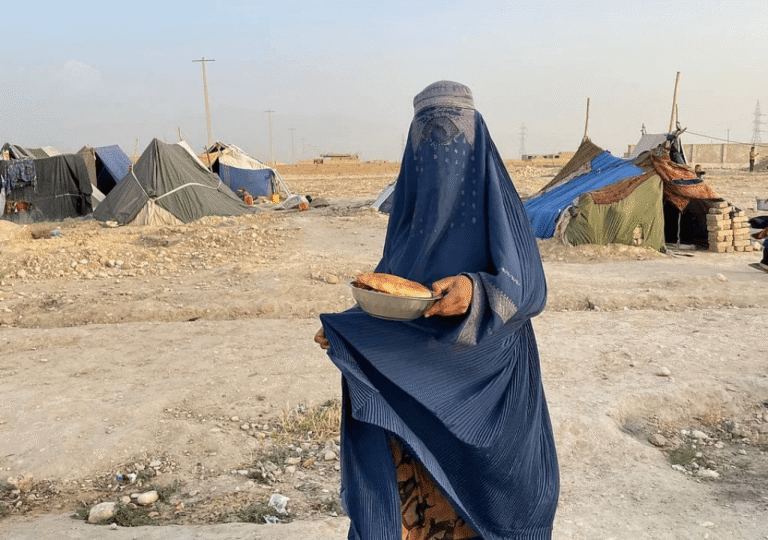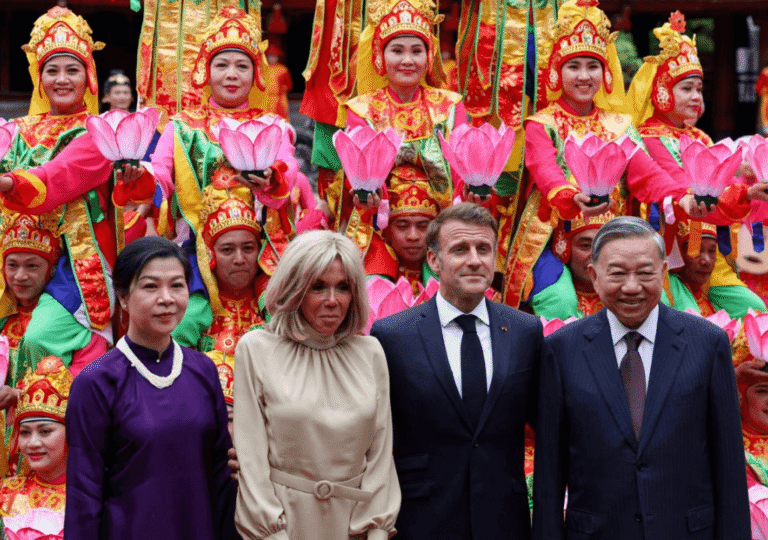Since the fall of the Soviet Union, the Kremlin has managed to keep much of its former empire within its orbit. But that grip is steadily loosening. One by one, countries are breaking away. Russia lost most of Central Europe, then Eastern Europe and now it appears to be losing ground in the Caucasus.
Azerbaijan, the oil-rich state in the Caucasus, has long been under Moscow’s influence. The relationship between Putin and Aliyev was once too romantic. But since the Nagorno-Karabakh war, and Russia’s struggles in Ukraine, Azerbaijan, who was not happy in the relationship unlike how it seemed from the outside, has begun charting a different path. It is no longer ready to obey Moscow. Instead, Baku has deepened its ties with Turkey and adopted a more assertive stance toward Russia on key issues. It looks like the couple is on the brink of divorce.
“We’re not afraid of you.”
When we talk about the cost of the Ukraine war on Russia, it is not just about punishing sanctions, a struggling economy, or young lives lost on the battlefield. Perhaps the most damaging loss for Russia is that many countries no longer fear Russia. It’s clear in Russia’s deteriorating relationship with Azerbaijan. They don’t fear Russia anymore. As tensions rise, Moscow seems to be falling back on its old good cop, bad cop routine. But Baku is not playing along. Its message to the Kremlin is clear: “We are not afraid of you.”
Relations began to sour further in late June, when two Azerbaijani citizens died in police custody in the Russian city of Yekaterinburg. That incident added to existing anger in Baku following the accidental downing of an Azerbaijani civilian plane in Russian airspace last December. Russia has refused to take responsibility for the crash.
In recent weeks, Azerbaijani President Ilham Aliyev has sharply increased his criticism of Moscow — something that could never have been expected a few years ago. On July 20, he announced that Azerbaijan would file international lawsuits related to the plane incident. Even more striking, he publicly praised Ukraine’s resistance against the Russian invasion, urging Ukrainians to “Never surrender” and “Never accept occupation.”
Yes, fearless Aliyev and Azerbaijan!!!
Fury in Moscow and Baku
President Ilham Aliyev’s public support for Ukraine proved too much for Moscow to ignore. In response, pro-government Telegram channels — often referred to as Z-bloggers — began targeting Azerbaijan with sharp criticism. These influencers, with large audiences, called for harsh measures, including military strikes and economic sanctions, to punish Baku for what they saw as a betrayal.
Their calls were echoed by some Russian lawmakers. Konstantin Zatulin, deputy chairman of the State Duma’s Committee for CIS Affairs, warned that the US and EU were gaining ground in the South Caucasus. He sounded the alarm that Russia risked losing all influence in the region — a development he said could even threaten domestic stability.
Amid the growing chorus of hardliners, Kremlin spokesperson Dmitry Peskov tried to strike a more conciliatory note. He stressed the mutual economic interests that bound Russia and Azerbaijan and said that periods of tension were normal in international relations. He expressed hope that the current rift would pass.
Aliyev continues to hold his ground. The Azerbaijani government has made it clear that restoring ties with Moscow will require Russia to abandon its imperial attitude. In a commentary published by Caliber, a pro-government media outlet, Azerbaijan’s stance was described as firm, pragmatic, and rooted in national interests. The article stressed that Baku would not bow to pressure or offer concessions, and that any future talks must be founded on mutual respect and equal footing.
The article also dismissed Russia’s media campaign as a symptom of its fading power, suggesting that Moscow now relies on threats rather than diplomacy. It warned that if these rhetorical attacks turned into actual military provocations, the consequences would be grave. Any escalation, it cautioned, could draw in Turkey — Azerbaijan’s key ally — and possibly broader international players, especially given Azerbaijan’s role as a crucial global energy supplier.
Azerbaijan is Turkey’s, not Russia’s.
In the broader geopolitical landscape, Azerbaijan’s key allies include Turkey, Israel, and Pakistan, while its main rivals are Armenia, Iran, and India. This alignment positions Azerbaijan naturally within the Western bloc, especially as many of Russia’s traditional partners stand on the opposing side.
A realignment appears to be underway. Turkey’s wider ambition to revive Turkic identity is gaining momentum, and several Central Asian countries seem to be moving in that direction. This trend could eventually create new challenges for Russia, even though Erdogan and Putin currently share a working relationship.
Among the Azerbaijani public, support is growing for closer ties with Turkey rather than with Russia. As a result, future dealings with Baku may increasingly go through Ankara instead of Moscow. This is a change the West would likely welcome, especially as it looks to connect with Central Asia.
Despite solid economic ties between Moscow and Baku, their political relationship shows little sign of returning to its former strength. Azerbaijan may see this as the right moment to move beyond Russia’s orbit — and by all indications, it already has.








